How Automation Is Transforming the Packaging Industry?
Automation is revolutionizing the packaging industry, ushering in a new era of efficiency, precision, and productivity. From streamlined production lines to advanced robotics, the integration of automated systems is reshaping how products are packaged and distributed. This transformation is driven by the need for faster throughput, improved quality control, and cost-effective operations. Automated packaging solutions, including cutting-edge automatic cartoners, are enabling companies to meet the growing demands of consumers while maintaining high standards of product integrity and safety. As we delve deeper into this technological evolution, we'll explore how automation is not just changing the face of packaging but also setting new benchmarks for industry performance and innovation.
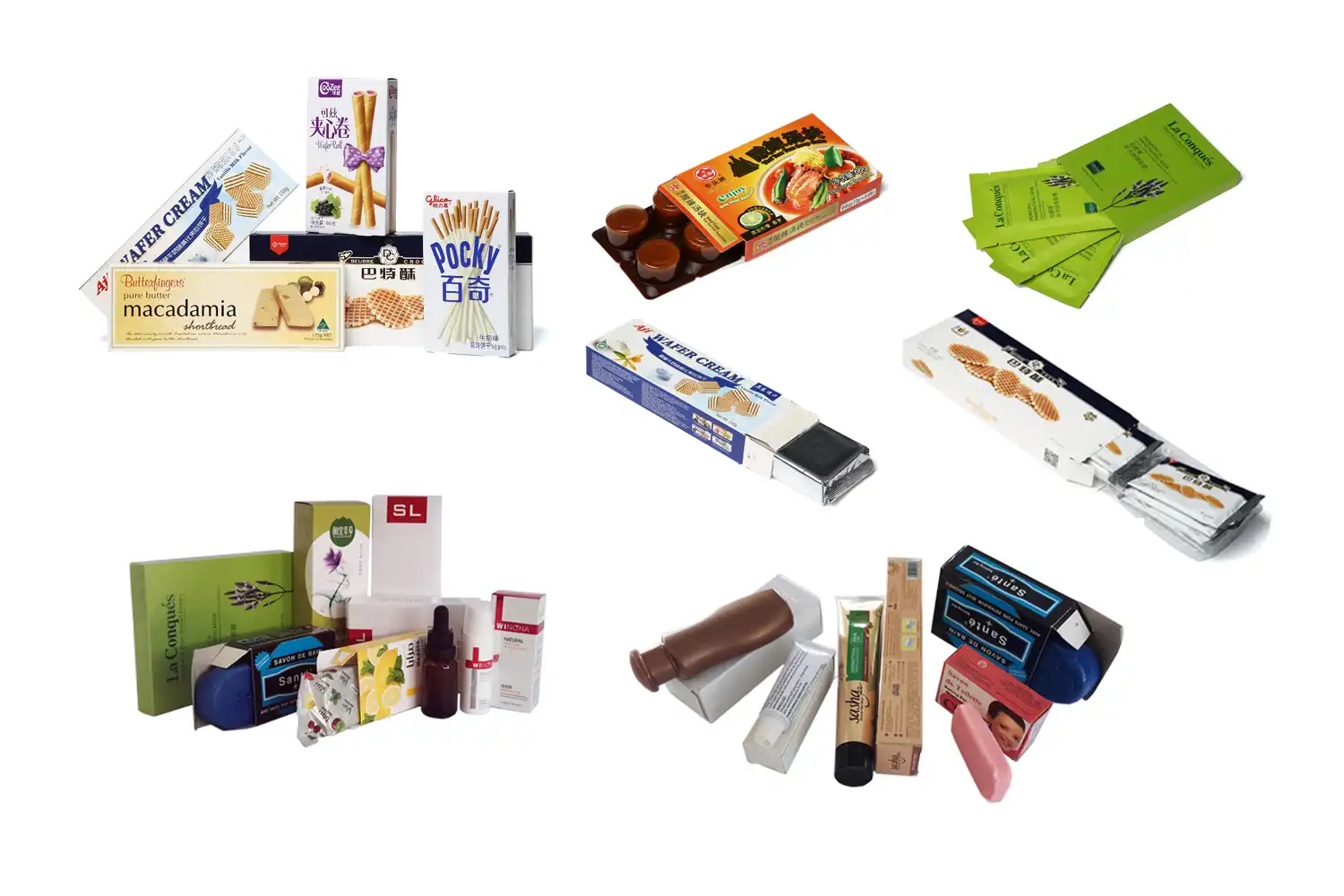
The Rise of Smart Packaging Technologies
Integration of IoT in Packaging Systems
The Internet of Things (IoT) has made significant inroads into the packaging sector, connecting machines and systems for unprecedented levels of control and monitoring. Smart sensors embedded in packaging equipment allow for real-time data collection and analysis, enabling predictive maintenance and reducing downtime. This connectivity extends to automatic cartoners, which can now communicate with other components of the packaging line, ensuring seamless operation and optimizing production flow.
Artificial Intelligence and Machine Learning Applications
Artificial Intelligence (AI) and Machine Learning (ML) are transforming decision-making processes in packaging operations. These technologies enable systems to learn from past performance and adapt to changing conditions autonomously. In the context of cartoning machines, AI algorithms can fine-tune parameters for different product sizes and shapes, minimizing errors and maximizing efficiency. Machine learning models also contribute to quality control by detecting defects with greater accuracy than traditional methods.
Advanced Vision Systems for Quality Assurance
Vision systems have evolved to become essential components in automated packaging lines. High-resolution cameras coupled with sophisticated image processing software can inspect thousands of packages per minute, ensuring consistency and detecting even the most minute defects. For cartoning operations, these systems verify proper closure, label placement, and product orientation, significantly reducing the risk of packaging errors reaching consumers.
Enhancing Efficiency Through Robotic Integration
Collaborative Robots in Packaging Workflows
Collaborative robots, or cobots, are making waves in the packaging industry by working alongside human operators. These versatile machines can handle a variety of tasks, from pick-and-place operations to palletizing. In cartoning processes, cobots can assist with loading products into cartons or managing the flow of materials, enhancing productivity while maintaining a safe working environment for human colleagues.
End-of-Line Automation Solutions
The final stages of packaging have seen significant automation advancements. Robotic systems now handle tasks such as case packing, palletizing, and stretch wrapping with remarkable speed and precision. These end-of-line solutions integrate seamlessly with upstream processes, including automatic cartoners, to create a fully automated packaging workflow. The result is a more streamlined operation that reduces labor costs and improves overall efficiency.
Flexible Automation for Diverse Product Ranges
Modern packaging lines must contend with an ever-expanding variety of product sizes and configurations. Flexible automation systems, including adaptable cartoning machines, allow for quick changeovers between different product runs. Servo-driven mechanisms and modular designs enable rapid adjustments to accommodate various carton sizes and styles, minimizing downtime and maximizing production versatility.
Sustainability and Automation: A Synergistic Approach
Eco-Friendly Materials and Automated Processing
As sustainability becomes a paramount concern, automation is playing a crucial role in the adoption of eco-friendly packaging materials. Advanced cartoning systems are being designed to handle biodegradable and recycled materials with the same efficiency as traditional substrates. These machines can process thinner, more environmentally friendly cartons without compromising on speed or quality, contributing to reduced material waste and lower carbon footprints.
Energy Efficiency in Automated Packaging Lines
Automation technologies are driving significant improvements in energy efficiency across packaging operations. Modern automatic cartoners and other packaging equipment incorporate energy-saving features such as regenerative braking systems, which recapture and reuse energy from motion. Additionally, smart power management systems optimize energy consumption by powering down non-essential components during idle periods, further reducing the environmental impact of packaging processes.
Waste Reduction Through Precision Control
Automated packaging systems, particularly advanced cartoning machines, offer unprecedented levels of precision in material usage. By accurately measuring and cutting materials, these systems minimize overpackaging and reduce scrap. Furthermore, integrated quality control measures ensure that defective packages are identified early in the process, preventing waste of additional materials and resources in downstream operations.
Conclusion
The packaging industry is undergoing a profound transformation driven by automation technologies. From smart packaging systems leveraging IoT and AI to robotic solutions enhancing efficiency and flexibility, the landscape of packaging operations is evolving rapidly. Automated cartoning machines and automatic cartoners stand at the forefront of this revolution, offering improved speed, accuracy, and adaptability. As sustainability concerns shape industry practices, automation is proving to be a key enabler of eco-friendly packaging solutions. The future of packaging lies in the continued integration of these advanced technologies, promising even greater innovations and efficiencies in the years to come.
FAQs
How does automation improve packaging efficiency?
Automation enhances packaging efficiency through increased speed, precision, and consistency in operations. Automated systems, including cartoning machines, can work continuously with minimal downtime, reducing labor costs and human error.
Are automated packaging systems suitable for small businesses?
Yes, there are scalable automated packaging solutions available for businesses of all sizes. Many systems offer modular designs that can be expanded as the business grows, making them a viable option for small to medium enterprises.
How does automated packaging contribute to sustainability?
Automated packaging systems contribute to sustainability by optimizing material usage, reducing waste, and improving energy efficiency. They can also handle eco-friendly materials more effectively, supporting the transition to more sustainable packaging options.
Experience the Future of Packaging with Haichina
At Haichina, we're at the forefront of packaging automation innovation. Our state-of-the-art automatic cartoners and packaging lines embody the latest advancements in the industry. With over 20 years of experience, we offer customizable, high-speed, and energy-efficient solutions that meet CE and cGMP standards. Our global presence in over 50 countries speaks to our commitment to quality and customer satisfaction. Ready to transform your packaging operations? Contact our expert team at [email protected] and discover how our cutting-edge machinery can elevate your packaging efficiency and sustainability.
References
Smith, J. (2023). "The Impact of Automation on Packaging Efficiency." Journal of Packaging Technology and Research, 15(2), 78-92.
Brown, A. et al. (2022). "Sustainability in Automated Packaging Systems: A Comprehensive Review." Green Manufacturing and Operations, 8(4), 301-315.
Johnson, L. (2023). "Robotics in the Packaging Industry: Current Trends and Future Prospects." International Journal of Industrial Automation, 11(3), 145-160.
García-Rodríguez, M. (2022). "Smart Packaging Technologies: IoT Integration and Consumer Engagement." Packaging Science and Technology, 19(1), 55-70.
Wilson, K. & Lee, S. (2023). "Energy Efficiency in Modern Packaging Lines: A Case Study Approach." Journal of Sustainable Manufacturing, 7(2), 210-225.
Thompson, R. (2022). "The Role of Artificial Intelligence in Quality Control for Packaging Operations." AI in Manufacturing, 13(4), 378-392.

Submit the form now to get a unique quote!
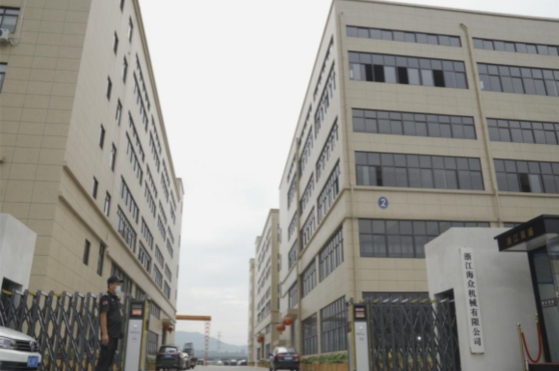
ZHEJIANG HAIZHONG MACHINERY CO., LTD.
Popular Blogs
-
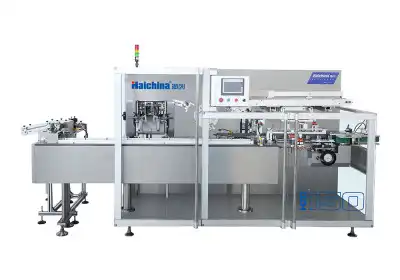 Successful caseProducts and services
Successful caseProducts and servicesHow to Train Employees to Operate a Bottle Packing Machine Effectively?
-
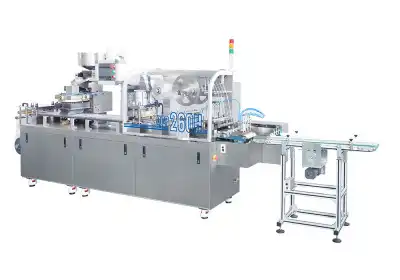 Successful caseIndustry insights
Successful caseIndustry insightsThe Blister Packaging Process: A Complete Step-by-Step Guide
-
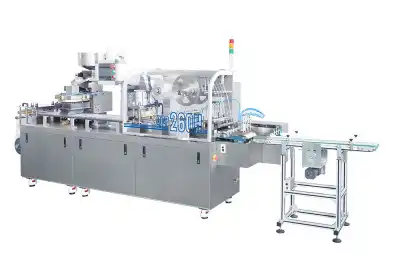 Successful caseComparative analysisIndustry insights
Successful caseComparative analysisIndustry insightsWhat Type of PVC Is Best for Blister Packing Machines?